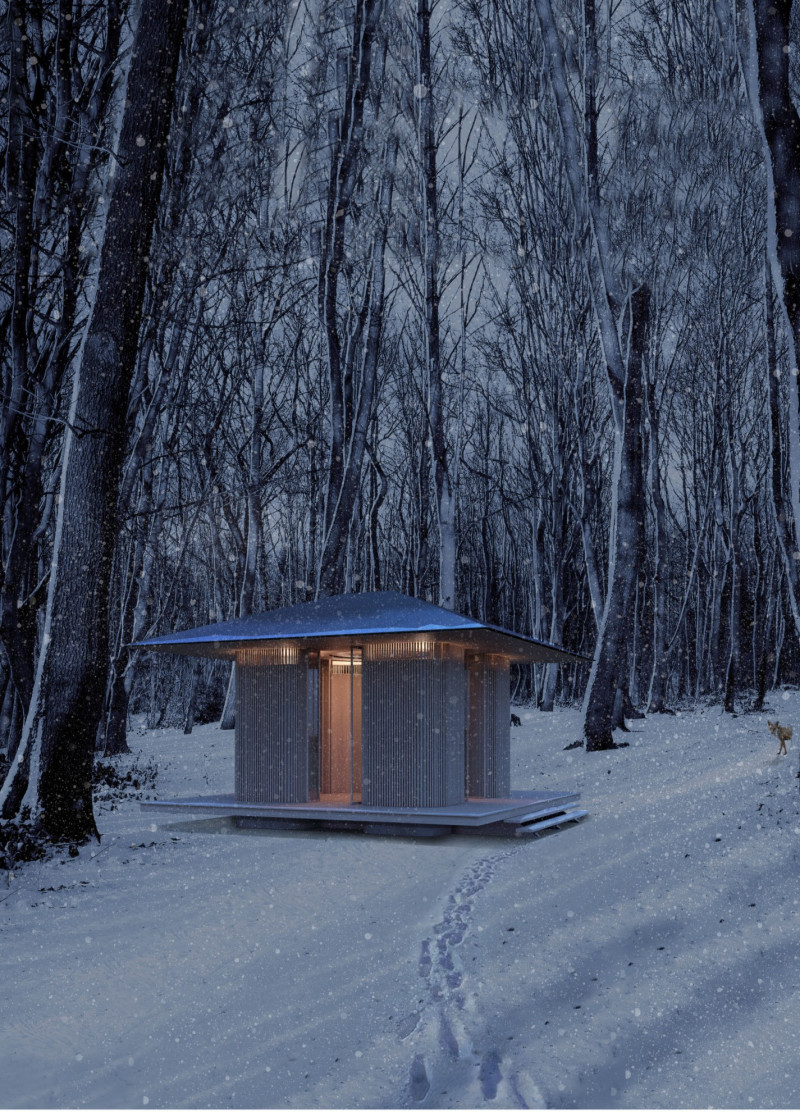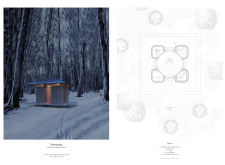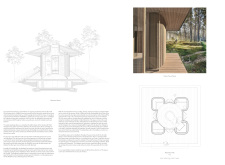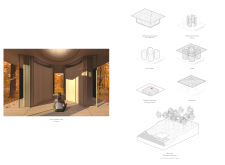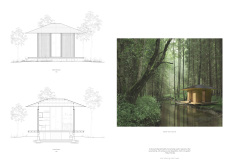5 key facts about this project
The Mandala is a silent meditation cabin located in the peaceful Latvian landscape. It is designed to promote reflection and a connection with nature, inspired by the concept of the mandala, which symbolizes the universe in Hinduism and Buddhism. The overall design focuses on flexibility and practicality, supporting both personal solitude and community activities in a way that enhances mental well-being.
Architecture Concept
The layout includes essential spaces: a meditation area, bed storage, a toilet, a study zone, and a kitchenette. Each of these elements is carefully organized to create an effective living environment that meets everyday needs. The arrangement encourages a natural flow, allowing occupants to move easily between areas meant for quiet thought and those for practical purposes.
Natural Light and Spatial Adaptability
One notable feature is the oculus, which brings natural light into the interior, creating a welcoming atmosphere for mindfulness. This design element helps occupants stay aware of time and their surroundings, reinforcing their connection to the outdoors. Additionally, movable walls give the cabin flexibility, allowing users to shift the space from private to communal as desired, catering to both personal needs and social interactions.
Sustainable Practices
The Mandala connects with the environment by minimizing disruption to the site. Locally sourced lumber is used, emphasizing the project's commitment to sustainability and local craftsmanship. Renewable energy solutions, such as solar panels and rainwater harvesting systems, contribute to efficient resource use. The Ondul heating system, an ancient form of underfloor heating, provides comfort while being environmentally friendly.
Design Detail
A tea house component is included within the cabin, promoting cultural practices related to traditional ceremonies. This aspect strengthens the connection to Latvia's heritage. Each design choice reflects a deep respect for both the natural and cultural contexts, enhancing the user experience in a meaningful way.


